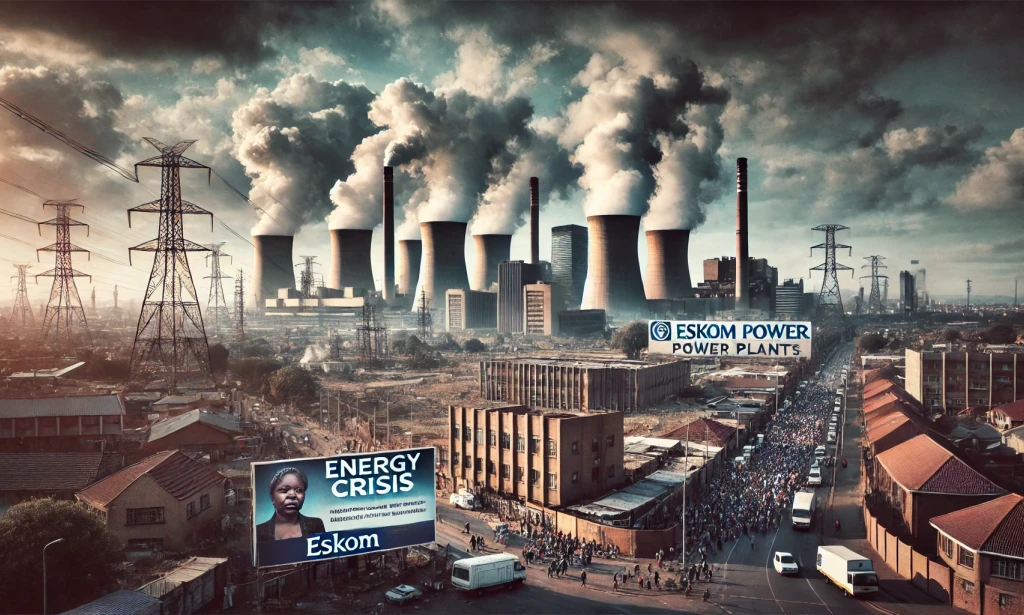South Africa Faces Renewed Challenges Amidst Eskom's Power Cuts and Economic Pressures
On March 9, 2025, South Africa finds itself grappling with a series of economic and energy-related challenges that are putting immense strain on the nation’s stability and growth. The issues range from power outages to tensions in the business and political landscape, affecting everything from daily life to international relations. Here is a closer look at the key developments.
Eskom Implements Stage 3 Load Shedding
One of the most pressing issues facing South Africa today is the ongoing power cuts implemented by Eskom, the country’s primary electricity supplier. Due to operational failures at critical power plants like the Koeberg nuclear station and Kusile coal power station, Eskom has reinstated Stage 3 load shedding, which involves removing up to 3,000 megawatts from the national grid. This decision follows a significant shortfall in the generation capacity, with Eskom unable to meet the daily demand for electricity.
The power outages have led to daily disruptions, with citizens and businesses experiencing power cuts for up to 14 hours in some areas. Eskom has warned that these outages may continue for the foreseeable future as repairs to the affected facilities are underway. Energy Minister Kgosientsho Ramokgopa is expected to provide further updates in the coming days on how the government plans to address these power generation issues.
Elon Musk Criticizes South Africa’s Black Economic Empowerment Laws
In a related economic development, billionaire entrepreneur Elon Musk has sparked controversy by criticizing South Africa’s Broad-Based Black Economic Empowerment (B-BBEE) laws. These laws require companies operating in the country to allocate 30% of their equity to Black South Africans as part of the government’s efforts to promote economic inclusion.
Musk, who has been attempting to launch his satellite internet service, Starlink, in South Africa, claims that these policies are "openly racist" and that they have hindered his business operations. According to Musk, the laws have made it difficult for Starlink to enter the market and provide services in the country. However, the South African government has rejected Musk’s claims. Clayson Monyela, Deputy Director-General of South Africa’s Department of Public Diplomacy, emphasized that the issue is not related to race but to compliance with the country’s laws.
Despite Musk’s criticism, neighboring countries such as Namibia and Zambia have welcomed Starlink’s services, raising questions about the economic and regulatory environment in South Africa that is affecting business ventures like Musk’s.
ArcelorMittal South Africa to Cease Long Steel Production
South Africa’s industrial sector is also facing significant setbacks. ArcelorMittal South Africa, one of the country’s largest steel producers, has announced plans to cease its long steel production by April 2025. This decision follows weak domestic demand and increasing competition from smaller scrap metal mini-mills and cheaper imports, primarily from China.
The closure of ArcelorMittal’s long steel division is expected to result in the loss of approximately 3,500 direct and indirect jobs. The company’s management cited high operational costs and the country’s export taxes on scrap metal as factors contributing to the shutdown. This marks another blow to South Africa’s already struggling manufacturing sector, as many industries are facing the dual challenges of global competition and domestic policy constraints.
Cabinet Approves Reworked Budget Amidst Economic Strains
As South Africa navigates these complex challenges, the national government has been working to address the country’s fiscal health. On March 9, 2025, the Cabinet approved a reworked budget that aims to balance the country’s fiscal needs with the pressing economic pressures on ordinary citizens. The budget includes provisions to protect low- and middle-income households from further financial strain while still addressing key issues like unemployment and inflation.
The South African government has opted against raising VAT (Value Added Tax) by 2%, as initially proposed, after concerns that such an increase would further burden the country’s poor. The finalized budget, which will be presented to Parliament on March 12, 2025, will be a critical document in shaping the country’s economic policies over the next year.
Nationwide Crackdown on Illegal Immigration Launched
In response to ongoing social and economic challenges, South Africa has launched a nationwide operation to crack down on illegal immigration. The operation, which began on March 1, 2025, aims to identify, arrest, detain, and deport foreign nationals who are residing in South Africa without proper documentation.
The crackdown is largely focused on undocumented migrants from countries such as Zimbabwe, Somalia, Ethiopia, Mozambique, Nigeria, and Malawi. South African authorities have justified the operation by citing concerns over employment, housing, and public services, which are under increasing pressure due to the country’s high unemployment rate. However, the operation has sparked fears of potential xenophobic violence and diplomatic tensions with neighboring countries, who have expressed concern about the treatment of their citizens.
Conclusion
South Africa is currently facing a complex and challenging set of circumstances that require urgent attention from both the government and the private sector. From Eskom’s power issues to controversial policies that are affecting foreign investment, the country’s economic and social landscape is under strain. The recent government actions, including the crackdown on illegal immigration and the reworked budget, reflect efforts to stabilize the situation. However, these measures are unlikely to provide a quick fix, and South Africans will need to navigate through this turbulent period with resilience and adaptability.

You must be logged in to post a comment.